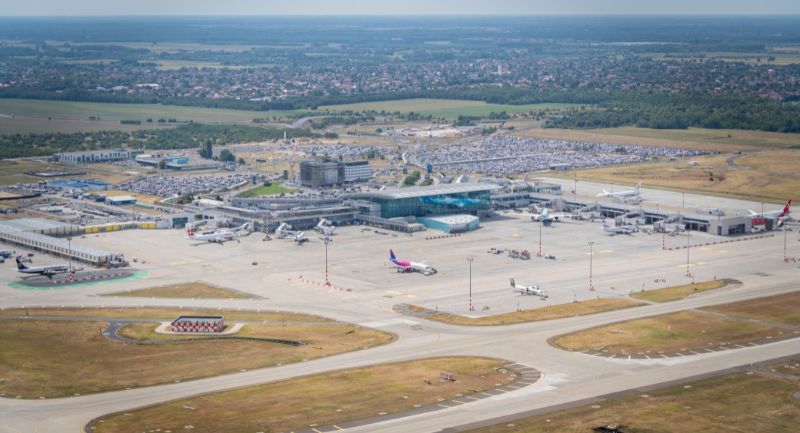
Best of Budapest & Hungary
Measure of Quality
Budapest Airport’s 2024 confirms its positive momentum with results exceeding expectations
2024 broke all previous records in the history of Budapest Airport; 17.6 million passengers and nearly 300,000 tonnes of air cargo passed through Ferenc Liszt International Airport in 2024, foreshadowing robust passenger growth in the coming years and consolidating the airport’s role as a regional hub. Annual passenger traffic at Budapest Airport, part of the VINCI Airports network, surpassed the pre-COVID level for the first time, and in anticipation of further growth, owners and management have begun preparations for the construction of Terminal 3, which will ensure a high quality of service for passengers in the long term.
2024 was a very important year in the history of Budapest Airport. After almost 20 years, the airport returned to majority Hungarian ownership; in June, the Hungarian state acquired an 80 percent stake in the airport operator and the French company and world’s leading private airport operator, VINCI Airports a 20 percent share. Moreover, the airport also broke all previous records by serving 17.6 million arriving and departing passengers in 2024. With 17,574,413 passengers handled last year, annual traffic not only exceeded the 2023 figure by 19,5%, but also surpassed the previous record-breaking 2019 figure by 8.7%. Hungary’s attractiveness as a tourist destination and Hungarians’ appetite for travel were reflected in the airport’s passenger traffic throughout the year, with over 1 million passengers every month, and Budapest Airport recorded the highest traffic growth in October among the 50 busiest European airports.
Budapest Airport is one of the main airports operated by VINCI Airports that crossed record-breaking thresholds in 2024: 35 million passengers were welcomed at Lisbon, 26 million at Santiago Airport in Chile, 15 million at Edinburgh in the United Kingdom and 8 million at Belgrade in Serbia.
In the 14 countries where VINCI Airports operates airports, more than 318 million passengers travelled in 2024, 11 million more than in 2019 and nearly 25 million more than in 2023.
At Budapest Airport, 141 destinations were available from 43 airlines in 2024, with London, Istanbul, Milan and Paris being the most popular destinations. Passenger traffic to and from China nearly tripled, and there was also record growth to Italy, Spain and Germany, supported by a number of new destinations and frequency increases on existing routes. Brand new destinations included Faro, Marrakesh and Bilbao, while the number of Chinese cities with direct flights from Budapest increased to five, with 17 flights per week in total. Wizz Air, Ryanair, Lufthansa, LOT Polish Airlines and Turkish Airlines carried the most passengers last year.
The owners expect continued robust growth in the future, supported by VINCI Airports’ excellent airline relationships and extensive network. This factor, combined with Budapest Airport’s airline development work, should result in even more available destinations, including long-haul flights. With 20 million passengers expected by 2030, preparations for the construction of the new Terminal 3 began at the end of last year. The first phase will involve an apron extension, while all elements of the further apron and terminal development are expected to be completed within eight years.
“It is also a great pleasure for VINCI Airports to see the dynamic growth of Budapest Airport and last year’s record figures. Hungary has huge potential in tourism, paving the way for growth at the airport,” summarised Francois Berisot, the CEO of Budapest Airport. He added: “Budapest Airport, together with the Hungarian Tourism Agency and the VINCI Airports airline development team, is continuously working on adding new connections that further open up completely new perspectives. The focus remains the same: quality, sustainability, development and growth.”
Budapest Airport also had an outstanding year in air cargo. While in 2023, it celebrated reaching the 200,000 ton threshold, the volume of cargo handled in 2024 almost reached 300,000 tonnes - 299,642 tonnes to be precise. This represents an increase of 48.8% from the previous year, and once again positions Budapest Airport as a leading player in the region. As with passenger traffic, air cargo volumes exceeded those recorded in the same period of last year in each month of the year.




